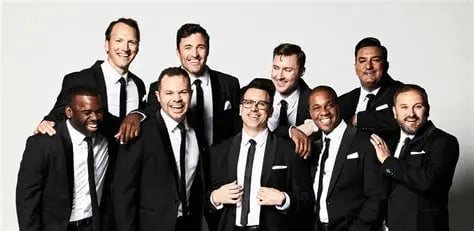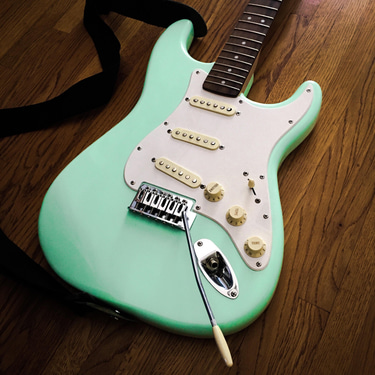Straight No Chaser is a cappella mastery
By Jim Dail
8/12/20255 min read


When one hears the term a cappella, the image that is conjured up is of a barber shop quartet, a church choir or guys from the '40s and '50s dressed in blue blazers singing at country clubs. That's not the case any longer.
Straight No Chaser, who will perform Saturday at the Pechanga Showroom, is a band dedicated to the old harmony sounds but in modern pop and rock ways.
“All of us were influenced by a broad range of music growing up, everything from The Beach Boys, The Beatles, INXS, Phil Collins, a wide range,” said leader Randy Stine. “Of course, our parents listened to doo-wop and that also influenced us. The key for us is that all of us had an appreciation of the vocal work and the harmonies."
Early on it was the usual choir participation that got the ball rolling, vocally.
"We were in junior high and high school choirs, but at that age you don't really think about doing a pop song that way," he said.
It all began for the group in 1996.
"Some of the guys, including myself, played guitar on the side, pianos, some trumpet, some sax, so all of us had instrumental backgrounds," he said. "I quit playing trumpets and focused on singing so I wouldn't have to carry the instrument!"
The connection came through a choir at the university.
"We were in a show choir and got to know each other," he said. "When we started, we didn't know each other so we picked the members of our group based on vocal talent. It worked out well. We were focused in the beginning on sound and it worked out that we became best of friends."
However, as tight as the group was, it was still all about the sound, even when it came down to friends of friends trying to get into the group.
"There were times after group was going where one of us would say 'My buddy wants to be in the group," he said. "Most of the time he wasn't the right fit so he wouldn't get in. That popped up after we got the band moving. After a few shows, we knew we had the right fit."
The band was very serious early on, even if they were not an immediate success, filling up major showrooms.
"Right away, rehearsals were absolutely vital, and we didn't have time for other stuff," he said. "Our gpas suffered for it. I remember our first gig was a 36-hour dance marathon to raise money for a children's hospital. It was 7 a.m. on a Sunday. We knew what songs we were going to do so we met at Denny's at 3 a.m. and sang the two songs we were going to do over and over."
Part of that was the realization that this could not only be the band's big break, but their only break.
"We were very prepared because we wanted to put the best out there," he said. "We knew it was our only chance because a cappella was not a coveted art form. We had to be ultra-prepared."
As the months went by, the band found itself playing at just about every spot they could find.
"Back then me and a couple of the guys did marketing and promotion ourselves," he said. "We did gigs at sorority houses, parents weekends, student groups that were having events. I'm from Chicago so I called home and sent out demos and we got a national anthem at Cubs and White Sox game and then mayoral events."
And forget about early riches.
"During that first part there were a lot of free shows, and then people started to make offers for money," he said. "Doing it for free early on was our selling point, a chance for people to see us and see if they want to have us perform. When they offered money, that was fine with us."
The songs were an eclectic collection.
"We did "One Fine Day," "The Longest Time," "Kiss Him Goodbye," "Africa," songs like that," he said. "But we do a lot of different songs now."
Part of that is the desire to broaden their range and be a little more creative.
We haven't done 'Longest Time' in a long time because now we are older we have a perspective of how many people are doing songs a cappella so we try to be a little more inventive," he said. "I had an idea for a song, Michael Jackson' 'Billie Jean, and tried to find a reason for us not to do because it seems like an odd choice. I was out with a friend and in the background I thought I could hear the 'Billie Jean' baseline. It was 'Poison' by bel biv devoe. I got home, pulled up the mp3s the songs and realized they could be merged together. So, that was how we did that song in the show every night."
The big success has been in part to Christmas songs, and there is a logical reason for it.
"We did a '12 Days of Christmas' arrangement, an arrangement passed around since the '50s," he said. "We kept changing it around in rehearsal and kept trying to figure out how to end it. One time we did "Africa" and stuck it on the end of '12 days.' We did that one time."
However, Stine had recorded their shows on video - Betamax - and converted them. Soon the song was on YouTube.
"The rest of the world saw it and buy they time we saw how big it was, the label suggested doing a holiday record first, which made sense. That was what had got us a name and so it made sense to do that so we weren't starting from scratch. "
That works well, since the style of singing is not that ideal for originals.
The biggest challenge is that a cappella is a cover genre where people don't go to a show to hear a night of originals," he said. "They want to hear songs they know may be reinvented. I mean, you are competing with some of the greatest songs of all time. We try to focus on songs people know and understand and try to present them in a different way."
As it all turns out, the band has come a long way from those early days.
"Back in college we thought there's no label that will ever take a chance on us so we had little hope, but we knew that there was a slim possibility," he said. "We got together at weddings and reunions and people kept telling us that we still sound good. At that time, several of us were trying to do other groups and were frustrated by lack of dedication to rehearsing. I quit the group I was with, and then the video went viral."
That lead to a reunion and, once again, trying to find gigs.
We got to do some small tours, again with little money," he said. “Finally, we toured in 2009 and had more people show up than we thought were possible. We started getting booked as something other than a Christmas song group, and that's when we realized that we'd finally made it."
